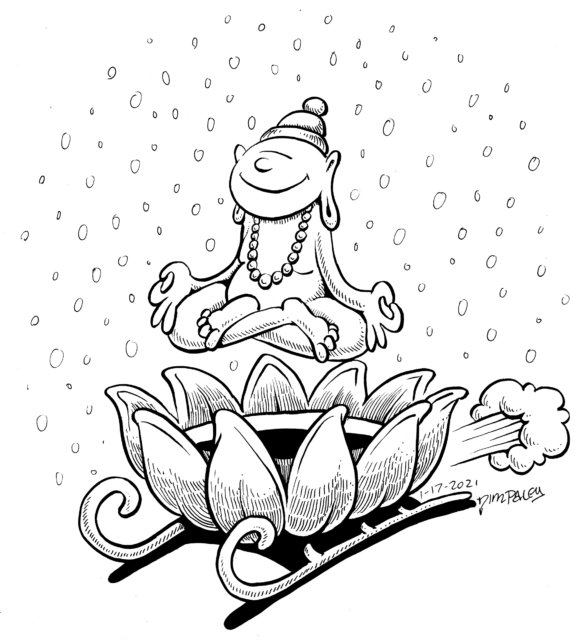Back when I was originally TERFened, I shared “If A Person Has A Penis He’s A Man” by Connie Bryson. I did not write those lyrics, and never claimed I did, but outrage compromises reading comprehension, so it’s been incorrectly attributed to me. Including by the man who wrote the letter below, whose identity I have concealed.
On yesterday’s International Gaslight Women Day, I was inspired to courage by JK Rowling to share this story on fecebook, and after the uncountable outraged responses urging me to cowardice, including from the author of the advice below, I decided to finally share it with the world.
If you stand up for anything, ever, expect this type of “support” from friends, family and loved ones. (Of course this is why few people stand up for anything.)
Nov 7, 2018
Nina–
I saw your post on Facebook this morning regarding whether you should post certain material that might feel risky, especially in light of the trans stuff. I’m not an artist and therefore I don’t–I can’t–have the same passion for needing to present art that you do. I can’t relate to that. But I think I understand something that I think got you to this place.
As an artist, you surely know that once you put your art out there, you can’t control how it is interpreted. When you wrote the poem with “If a person has a penis, it’s a man,” I don’t think you had any understanding of how it would be received. (Raedacted) and I had the same reaction to it: “What’s the point of this? Does she not understand that it looks like she is taunting a community of people? Why is she doing this?” Whether you were correct or not isn’t the point. What your intent was isn’t the point. The point is that the form which you chose in order to make your point made you look like a bully to a lot of people. It looked like taunting.
Since the poem was posted, you have been mistreated. I find the way you have been treated to be appalling. Deplatforming is beyond ugly. So, what to do?
I’ve asked myself what advice I could give you. I’ve felt like my advice wouldn’t matter to you. I thought about that when I was in (Redacted) this summer and I came to the conclusion that you wouldn’t listen to me or tell me I was wrong so I left it alone. The way you were choosing to express yourself made me feel like all I could do is upset you further. It may be that this email will indeed upset you further, but now I feel like I really should write given the level of despair you have been expressing publicly.
What I think would have helped after initial complaints about your poem would have been to write a post in every social media outlet you use, including your blog, including Facebok, saying something like:
“I realize that the poem I wrote came across in a very poor way. I did not mean to write something that offended so many. I meant to engage in a constructive discussion, but I now understand that it came across as mean-spirited and taunting. While that was not my intention, I apologize to those who were offended. It is never my intent to cause pain with my words.”
Leave it at that. Explaining yourself further may pour salt in wounds. An unconditional apology even if you are right is sometimes the best way to ameliorate pain.
A quick analogy… Consider the racist politician who panders by saying, “I have lots of black friends.” A black person may interpret that as, “We have been insulted and now I am told that we shouldn’t be insulted because that person knows a small number of us? What kind of person does that? That person has no idea what I live with. That person does not understand my world.”
Instead of apologizing for the poem, you doubled down, tripled down, and much more, by insisting that what you wrote wasn’t wrong, implying it shouldn’t offend people. It may have been made even worse by saying, “I have lots of trans friends.” I wouldn’t be at all surprised to learn that there are trans people who feel that you continue to pour salt into their wounds.
It was not your intent. But you now have a significant perception problem.
I don’t read every one of your blog entries or see every one of your Facebook posts. Maybe you have apologized for the poem in an unconditional manner. Maybe you no longer try to justify your poem. If so, that is probably the best you can do. It may be that, near-term, you are going to be stuck with the backlash. Even with an unconditional apology, there will be people who say, “She’s only saying that because we hurt her and she wants her film to do better.” I wouldn’t expect overnight improvement in perception. It’s going to take a while.
Again, there is no excuse for how you have been treated. It’s horrifying. That said, my advice, which you can discard if you disagree with me, is to stop doubling down on the poem, to issue that sincere apology, and do not tie that apology to any expected behavior by others. After that be very, very careful about how people may interpret your future words. It may be best simply not to engage the trans group even if you want to. Just ask the question, “What’s the upside?”
Love,
(Redacted)



